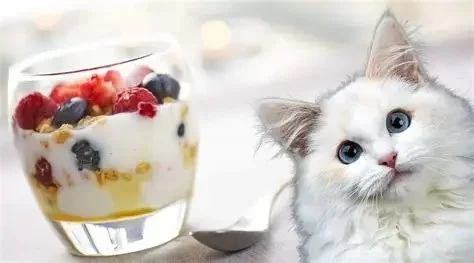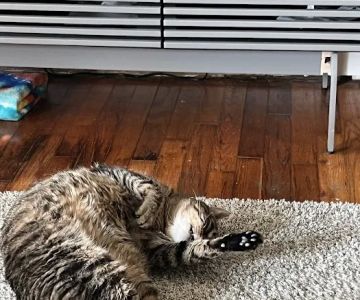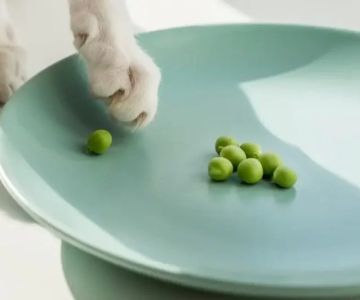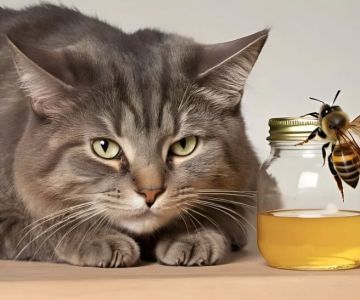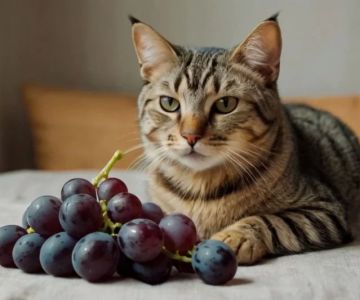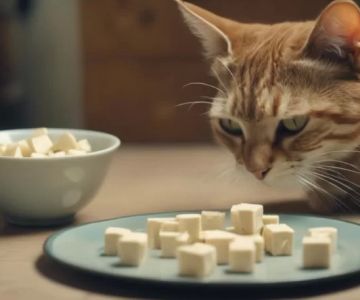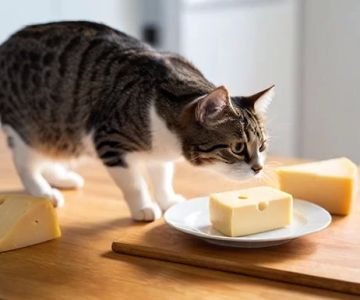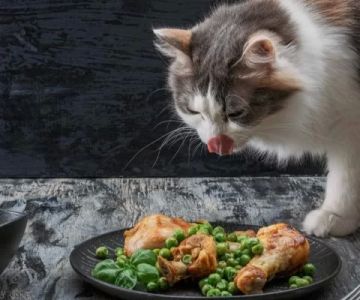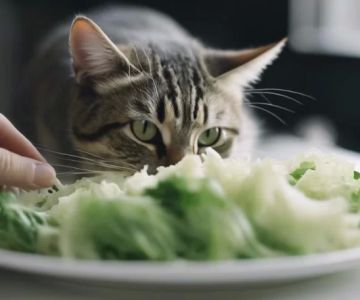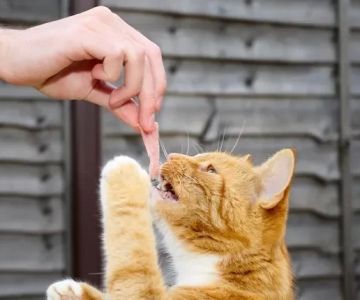- 1 - Can Cats Eat Vanilla Yogurt Safely?
- 2 - Understanding Cats and Dairy Products
- 3 - The Risks of Vanilla Yogurt for Cats
- 4 - Are There Any Benefits to Yogurt for Cats?
- 5 - How Much Yogurt Is Safe for Cats?
- 6 - Real-Life Cat Owner Stories and Experiences
- 7 - Healthier Alternatives to Vanilla Yogurt
- 8 - Why Consult Hidden Brook Veterinary Before Feeding Treats
1. Can Cats Eat Vanilla Yogurt Safely?
Many cat owners have wondered, “Can cats eat vanilla yogurt?” It’s a common question, especially when your feline friend starts curiously sniffing your dessert. While a tiny lick might not harm most cats, regularly feeding them vanilla yogurt is not recommended. The main reason is that most cats are lactose intolerant, and flavored yogurts often contain added sugars or artificial sweeteners that can be harmful.
Yogurt might seem like a harmless treat because it’s soft and creamy, but not all ingredients that are safe for humans are safe for cats. Vanilla flavoring, especially if it’s synthetic or contains alcohol-based extracts, can upset a cat’s digestive system or cause toxicity if consumed in large amounts. Always consider what’s in the yogurt before letting your cat try it.
2. Understanding Cats and Dairy Products
Contrary to popular belief, cats and dairy don’t naturally mix well. Most adult cats lose the enzyme lactase after kittenhood, which means they can’t properly digest lactose — the sugar found in milk and dairy products. This can lead to symptoms like bloating, diarrhea, and stomach cramps.
Even though yogurt contains less lactose than milk due to the fermentation process, it can still be too much for a sensitive feline digestive system. A cat’s diet should primarily consist of protein-based foods, not dairy or sugar. Yogurt, especially sweetened varieties like vanilla, falls outside their natural dietary needs.
If you’re ever uncertain about a specific food, Hidden Brook Veterinary recommends consulting your veterinarian before introducing it into your cat’s diet. What seems like a small treat to us can sometimes have an outsized effect on a cat’s health.
3. The Risks of Vanilla Yogurt for Cats
Vanilla yogurt may contain several ingredients that are not feline-friendly. Artificial sweeteners such as xylitol, found in some low-fat or sugar-free yogurts, are extremely toxic to cats and can lead to liver failure or hypoglycemia. Even natural sugar can disrupt their metabolism and contribute to obesity or diabetes over time.
Additionally, vanilla extract often contains alcohol, which can be dangerous for cats even in small amounts. It’s important to remember that cats process food differently from humans — what we consider mild or natural can be overwhelming to their smaller systems.
Another risk comes from dairy intolerance itself. If your cat consumes too much yogurt, symptoms like vomiting, gas, or loose stools may appear within hours. These signs indicate that their body is struggling to digest the lactose and added ingredients.
4. Are There Any Benefits to Yogurt for Cats?
While it’s true that plain, unsweetened yogurt with live cultures can have minor probiotic benefits, these are typically outweighed by the potential risks of flavored versions. Some veterinarians recommend small amounts of plain yogurt to help with digestion, but this should only be done under professional advice.
Yogurt does contain calcium and protein, but cats already get sufficient amounts of these nutrients from high-quality cat food. Supplementing with yogurt offers little nutritional benefit and can lead to more problems than it solves if given inappropriately.
5. How Much Yogurt Is Safe for Cats?
If you still wish to share a little yogurt with your cat, moderation is key. A lick or two of plain, unsweetened yogurt once in a while is usually safe for healthy adult cats. However, flavored varieties like vanilla yogurt should be avoided due to their sugar content and potential additives.
When introducing any new food, start with a very small amount and observe your cat’s reaction. If they show signs of discomfort, stop immediately and consult a veterinarian. Remember that cats have very specific dietary needs, and human foods should never replace their regular meals.
6. Real-Life Cat Owner Stories and Experiences
Many cat owners have shared stories online about their pets sneaking a taste of yogurt. For example, one owner from California discovered her cat licking an empty yogurt cup and later noticed mild digestive upset. Another cat owner in Texas said her cat enjoys a small spoonful of plain Greek yogurt without any issues — proving that each feline reacts differently.
These real-life stories show that while some cats tolerate small amounts of yogurt, others can have adverse reactions. That’s why monitoring your cat’s behavior and consulting with professionals like Hidden Brook Veterinary is so important when experimenting with new foods.
7. Healthier Alternatives to Vanilla Yogurt
If you’re looking for a treat that’s safe and enjoyable for your cat, consider alternatives designed specifically for feline nutrition. Many pet stores carry cat-friendly snacks that mimic creamy textures but contain no harmful dairy or additives. You can also try homemade options like:
1. Puréed pumpkin: Great for digestion and rich in fiber.
2. Tuna purée: A protein-packed treat most cats love.
3. Cat yogurt treats: Formulated for feline digestion, often lactose-free.
These choices are not only safer but also more aligned with your cat’s natural dietary needs.
8. Why Consult Hidden Brook Veterinary Before Feeding Treats
Every cat is unique — what’s safe for one might not be for another. At Hidden Brook Veterinary, professionals emphasize that dietary experimentation should be done carefully and always in moderation. If you’re unsure about giving your cat yogurt, vanilla or otherwise, a quick consultation with your vet can prevent unnecessary health risks.
Our clinic provides personalized guidance on nutrition, safe treats, and overall wellness, ensuring your pet stays healthy and happy. Before reaching for that yogurt cup, remember: a cat’s digestive system isn’t built for dairy indulgence. Stick to safe, balanced options and treat your feline friend the way nature intended — with care and knowledge.

